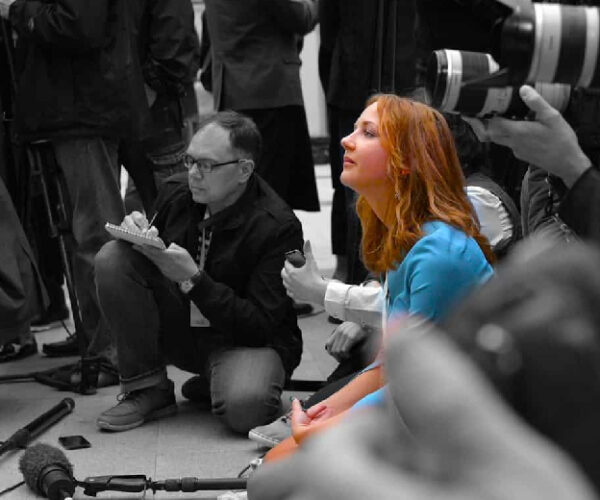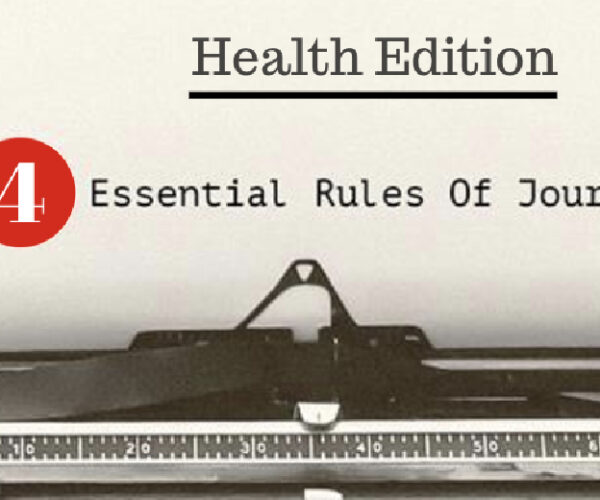Journalism strives to give readers facts that are accurate and reliable. Making good decisions is dependent upon having access to information of suitable context, which journalism does not provide in a strict sense but provides as it can be found for now until the truth becomes clear or new truths supersede them.
Even truths codified by law and science – may one day change, but they’re necessary while we wait for more knowledge or better understanding. The journalist’s responsibility lies with what is possible today rather than what could come tomorrow; doing so ensures all their work will remain relevant no matter how much time passes before something changes again
Journalists should be wary of being drawn into a game that is too easily manipulated by those in pursuit of their own agendas. Journalists have to play it safe and stick with the truth as they see it, even if doing so means risking offending people who do not want certain facts revealed or truths told outright.
The journalist’s job has always been one which requires enormous restraint but also asks for tremendous fortitude on behalf of its practitioners due to how powerful information can be when wielded properly — especially now more than ever before because there are fewer things journalists can rely upon anymore such as absolute truth
In the world of expanding voices, “getting it right” is crucial. Transparency should be maintained by journalists about their methods and sources, enabling readers to assess information for themselves. However even in this environment there still needs to be journalists dedicated to finding out news and verifying them before they put new stories into context with all other events
A society’s larger truth emerges through a forum like journalism where citizens encounter more data over time which requires an increased need for information providers who are committed to getting good facts straight
Its First Loyalty Is To Citizens
The relationship between a newspaper publisher and citizens is one in which the latter has ultimate power. The only way for this to be true, though, is if the former can place their personal interests at bay as they strive to put citizen interests above all others -including themselves-. This inherent belief that journalism should be “free of fear or favoritism” causes people who are seeking information about current events from other sources than journalists’ content to perceive it as less valuable because it cannot provide unbiased truth; these ideas have caused democracy itself, where every voice matters equally regardless of consenting with any opinion out there on anything (Friedman).
It is important for journalists to make sure that they are creating a representation of citizens of society. Excluding certain groups can have an adverse impact on their participation, which would be detrimental to their credibility and audience size. The theory behind this belief has been that by building an audience’s trust through credible reporting, then hopefully economic success will come as well; but it must start with showing respect towards those you report on- not just taking advantage or exploiting your allegiance with the public ahead of other considerations such as personal gain. Technology may evolve over time, but if we earn people’s trust from our actions every day and nurture what we’ve built–then I believe it will endure even when new technologies arise
Its Practitioners Must Maintain An Independence From Those They Cover:
In the past, journalists have faced a dilemma. They must be objective but they also know that being unbiased is impossible because of their unique perspective and cultural background. However, objectivity has evolved to not only mean impartiality with evidence; it now means multiple perspectives on an issue or story so personal bias does not overpower accuracy in reporting. For example, by seeking out various witnesses for comment as well as disclosing information about sources when possible these steps are all signals of such standards.”
Journalism is a unique profession that has the power to keep those in positions of influence accountable. It can also offer voice for people who are otherwise powerless and unheard. Drawing on its ability as an independent monitor, journalism helps society stay vigilant against potential abuse by those with power or authority over them.”
It Must Serve As An Impartial Observer Of Power:
In the 1600s, a watchdog’s role was to redefine what journalists did. Instead of acting as passive stenographers who would simply record events happening in front of them like they were pieces on a chessboard, watchdogs sought out and discovered news when it happened instead. This made sure that people weren’t blindsided by sudden changes or surprised with new information which could impact their lives for better or worse
It’s not enough for journalists to monitor what the government is doing. Observing society’s unseen corners was a core principle of the earliest journalists, Kovach and Rosenstiel write. Readers flocked to their pages from all over the country to experience the world they chronicled, generating a sudden and enthusiastic response from the public.
In conclusion, the role of a watchdog is to make an organization’s power be transparent in order for people to understand its effects. Including reporting on both successes and failures. Journalists should not take advantage of this freedom by making it their own or ridiculing them when they do something wrong because that would undermine what makes journalists so essential in society today.
In addition with reporters’ obligation being to protect these freedoms from other abuses like commercial marketing use which could result into undermining those very same powers for good; especially now at a time where journalism has become more important than ever before!
Public criticism and compromise must be facilitated by the news media.
Public discussion is carried by the news media, and they receive special privileges from democratic societies for this responsibility. The privileges can include policies protecting content and free speech (e.g., lower postal rates for print, the use of public spectrum) and subsidies (e.g., direct and indirect subsidies for distribution). However many times these privileges have been used in the past they may not always be available as well given the changing nature of society. Public discussion is best served by well-verified facts and a fair representation of all viewpoints. Journalists must also seek to find the points where society can come together rather than highlighting problems that are not being solved. Accuracy in reporting requires an acknowledgment of similarities, as well as verifying information so it does not just consist on prejudice or supposition
It Must Work Hard To Keep The Significant Relevant And Interesting:
Remember, journalism is a form of storytelling with an intention. The site should do more than only gather attention or catalogue what’s important at the moment. Journalism should focus on what readers want and need, while also being able to anticipate their needs before it even happens in order for journalism to provide this service successfully
Journalism is both a way of providing information to the public and an art form. Journalists must constantly be striving for what they find compelling or informative, but also truthful in order to engage their readers as well as enlighten them about current events. Newspapers should not only report on government-related topics like law enforcement, congress men’s speeches at rallies; instead newspapers need to provide more coverage on other issues that may seem less significant such as local school board meetings so that people can see how these seemingly minor incidents have consequences beyond just being part of everyday life – which will help create dialogue around important matters and affect policy decisions all over the country because it’ll show citizens where real problems stem from!
News coverage must be thorough and proportionate.
The mapping of our society is a significant function that journalism provides. Journalism creates an accurate map that helps citizens understand their place in the world and how they can navigate it, but with any sort of cartography there are some limitations inherent as well. The proportionality allows greater visibility on more important things while still keeping news relevant – by not sensationalizing or neglecting certain aspects altogether – we’re able to produce something closer resembling objective truth which makes all maps, including journalistic ones, more reliable than anything else would be capable of producing
One of the most important aspects in producing an accurate and complete map is including all affected communities, regardless of demographics. To produce a realistic story that takes into consideration a diverse range of perspectives, it is crucial to be as comprehensive as possible but there are many ways to measure this.
The importance of being inclusive should never be underestimated when creating any type of map or doing research for your project
The practitioners must also think for themselves.
It is also important because it can help the boss avoid making a mistake or protect the organization’s image through raising concerns, flagging omissions and challenging false assumptions. Ethics are of great importance for all journalists as well as online contributors who should feel free to raise their hand if they see something wrong in order to make things right even though this might not be popular with others around them.
The digital age has made it easier for reporters to report their stories, but the absence of an editor or a second viewpoint means that errors could be missed and misinformation can spread. Though crowdsourcing helps catch any potential mistakes, such sloppiness damages both the image of journalists as well as public discourse when people are left in limbo wondering what they should believe.
The public is also entitled to information on the world around them.
Unlike traditional journalists, who rely on a few sources to learn about the world around them, people now have access to an endless amount of material. Every person is more like a journalist than ever before because they’re constantly taking in information and deciding what’s worth passing along. Nowadays you could be writing blog posts or commenting on social media without even realizing it!
News outlets are veering away from the traditional gatekeeper model and towards a more “customer-focused” mindset. Rather than just providing journalism, they’re now expected to provide it in an engaging way that will keep people coming back for more.
To deliver content on this level of engagement, journalists must be able to verify information their audience is already privy too or likely finds themselves without any help at all when trying to parse what exactly happened and how they might use it moving forward.






